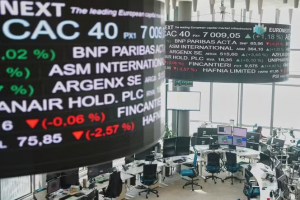The German economy is bracing for significant challenges as 2025 approaches. The general sentiment among economic circles has deteriorated due to several factors, including rising costs, increasing bureaucracy, and ongoing global crises. According to evaluations by German business associations, the current economic situation is worse than last year, with growing concerns about the future dominating discussions.
Michael Hüther, Director of the employer-associated German Economic Institute (IW), commented on the findings of the annual survey conducted by the institute in collaboration with major business associations. He stated: "Rarely has the economic situation been as worrying as it is now. Over the past 100 years, we’ve witnessed several crises, but none as complex or with as many underlying causes as those we face today."
By the end of 2024, 31 out of 49 associations surveyed classified the current state of their sectors as worse than the previous year. In contrast, only four sectors reported improvements—waste management, insurance, trade fairs, and real estate, according to the German Press Agency (DPA).
Key Challenges
Hüther added: "Labor, materials, and energy have become prohibitively expensive. Excessive bureaucracy hinders progress, while instability in global markets negatively impacts exports. Domestic political disarray weakens investment. The next German government faces a daunting task in finding sustainable economic solutions."
Production and Labor Market Outlook
Looking ahead to 2025, the survey results showed a slight increase in optimism compared to the previous year’s survey. However, the majority still hold a pessimistic outlook.
- Production: Twenty associations expect production to decline in their sectors, 13 anticipate production levels to remain unchanged, and 16 predict growth.
- Labor Market: The IW researchers warned of a negative impact on the labor market due to the overall economic downturn. Twenty-five associations foresee job cuts in their sectors in the coming year, while only seven expect job growth.
Sectors likely to see job losses include iron and steel, machinery, automotive, and construction. Conversely, job growth may occur in the pharmaceutical and aviation industries.













